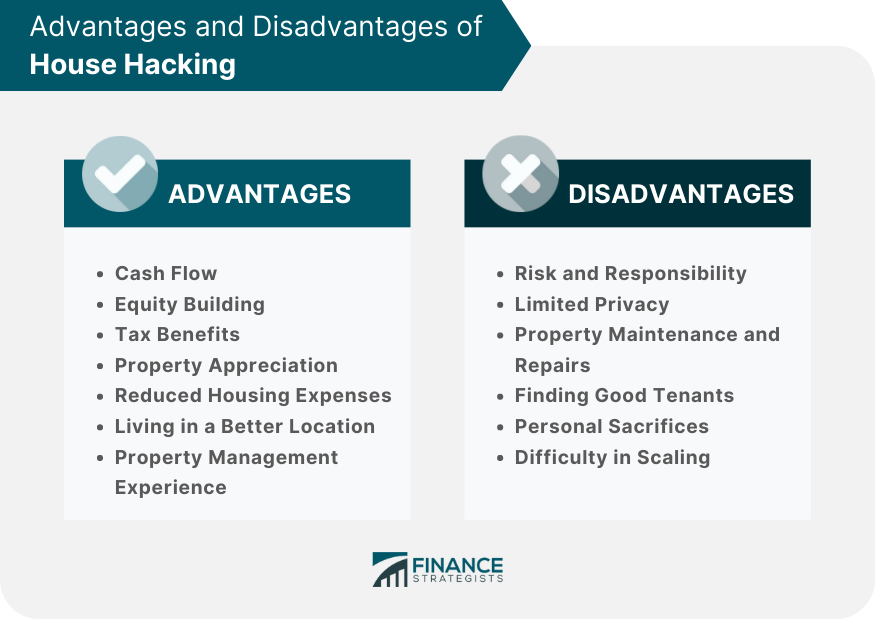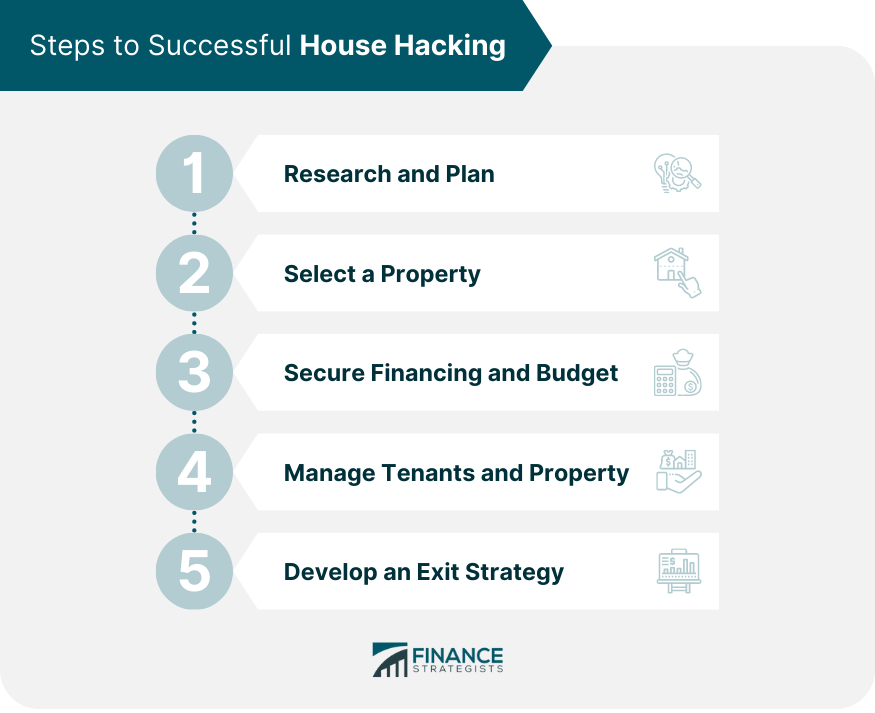House hacking refers to a real estate investment strategy where an individual purchases a multi-unit property, such as a duplex or triplex, and lives in one unit while renting out the others. By doing so, the rental income generated from the other units can help offset the cost of the mortgage and other expenses, allowing the homeowner to potentially live for free or at a reduced cost. House hacking can also provide the opportunity for individuals to build equity and generate additional income through real estate investing. This strategy is popular among first-time homebuyers and those interested in real estate investing, as it can provide a path to homeownership and financial independence. The concept of house hacking has gained popularity as a means for first-time homebuyers and investors to enter the real estate market with reduced financial risk. Traditional house hacking involves purchasing a multi-unit property, such as a duplex, triplex, or fourplex, and living in one unit while renting out the others. This is a common approach for first-time real estate investors because it allows them to generate rental income to offset the costs of homeownership while still maintaining a primary residence. The live-in-then-rent strategy involves purchasing a single-family home, living in it for a period of time, and then renting it out when the homeowner moves to a new primary residence. This approach allows the homeowner to build equity in the property while benefiting from potential appreciation before transitioning it into a rental property. Rent-by-the-room house hacking involves renting out individual rooms within a single-family home, rather than the entire property. This strategy can generate higher rental income, as tenants typically pay a premium for a private room compared to sharing the entire property with roommates. Vacation rental house hacking involves purchasing a property in a popular tourist destination and renting it out to short-term guests while the owner uses the property as their primary residence or vacation home. This strategy can provide significant rental income during peak tourist seasons, offsetting the costs of ownership and potentially generating a profit. House flipping as a form of house hacking involves purchasing a property in need of renovation, living in it while making improvements, and then selling it for a profit. This strategy can help minimize the costs of living expenses during the renovation period and potentially generate significant profits upon sale. One of the primary advantages of house hacking is the ability to generate cash flow from rental income. This can help offset the costs of the mortgage, property taxes, insurance, and maintenance, reducing the financial burden on the homeowner. House hacking allows homeowners to build equity in their property while using rental income to pay down the mortgage. This can create long-term wealth and provide a solid foundation for future real estate investments. House hacking may offer tax benefits, such as deductions for mortgage interest, property taxes, and depreciation. Additionally, rental income may be partially or wholly offset by expenses, reducing taxable income. As the property's value increases over time, house hackers can benefit from appreciation, providing an opportunity for long-term wealth creation. By generating rental income, house hacking can significantly reduce or even eliminate housing expenses, freeing up income for other financial goals or investments. House hacking can provide an opportunity to live in a more desirable location, as the rental income generated can help offset the higher cost of living in prime neighborhoods. House hacking serves as an excellent introduction to property management, as homeowners gain hands-on experience managing tenants and maintaining a property. House hacking comes with the risks and responsibilities associated with property ownership and being a landlord, including tenant disputes, non-payment of rent, and potential legal issues. Sharing a living space with tenants can result in reduced privacy and potential conflicts. House hackers are responsible for the maintenance and repairs of the property, which can be time-consuming and costly. One of the challenges of house hacking is finding reliable and responsible tenants, as poor tenant selection can lead to late rent payments, property damage, and other issues. House hacking often requires personal sacrifices, such as living in a smaller or less desirable living space, or sharing common areas with tenants. Scaling a house hacking investment strategy can be challenging, as each new property requires the investor to live in it for a certain period before it can be converted into a rental property. This can limit the speed at which an investor can grow their real estate portfolio. Federal Housing Administration (FHA) loans are a popular financing option for house hackers, as they require a lower down payment and have more lenient credit requirements compared to conventional loans. FHA loans can be used for purchasing multi-unit properties with up to four units, provided the borrower occupies one of the units. Veterans Affairs (VA) loans are available to eligible veterans, active-duty service members, and some surviving spouses. VA loans offer competitive interest rates, no down payment requirements, and no private mortgage insurance (PMI), making them an attractive financing option for house hacking. Conventional loans, which are not backed by the federal government, can also be used for house hacking. These loans typically require higher down payments and have stricter credit requirements compared to FHA or VA loans but may offer more flexibility in terms of property types and loan terms. Private lenders, such as hard money lenders or private individuals, can provide financing for house hacking. These loans are typically short-term and may have higher interest rates than traditional mortgage loans but can be a viable option for investors who are unable to secure financing through traditional channels. Before embarking on a house hacking journey, it's essential to conduct thorough research and create a solid plan. This includes understanding the local real estate market, analyzing potential properties, and determining your investment goals. Selecting the right property is crucial for successful house hacking. Consider factors such as location, property type, and potential rental income when evaluating potential investments. Secure financing and establish a budget for your house hacking investment. This includes determining the down payment, monthly mortgage payments, property taxes, insurance, and maintenance costs. Effectively managing tenants and property maintenance is essential for successful house hacking. This includes screening tenants, drafting lease agreements, collecting rent, and addressing maintenance and repair issues promptly. Develop an exit strategy for your house hacking investment, such as selling the property, converting it to a long-term rental, or refinancing to access equity. Ensure you understand and comply with local and federal laws and regulations related to property ownership, landlord-tenant relationships, and rental income reporting. Consult with a tax services professional to understand the tax implications of house hacking and to maximize available deductions and tax benefits. Obtain appropriate insurance coverage for your property and rental income to protect your investment. Determine whether you will manage the property yourself or hire a property management company to handle tenant and maintenance issues. Evaluate how house hacking aligns with your personal goals, lifestyle, and financial situation before committing to this investment strategy. House hacking is a unique real estate investment strategy that involves living in a property while renting out a portion of it to generate income. This approach offers several advantages, such as cash flow, equity building, tax benefits, property appreciation, and reduced housing expenses. However, it also comes with risks and challenges, including property management, limited privacy, and potential difficulty in scaling the investment strategy. Despite the challenges, house hacking can be a rewarding investment strategy for those willing to make personal sacrifices and take on the responsibilities of being a landlord. It can provide a solid foundation for future real estate investments and help individuals achieve financial freedom. As the real estate market continues to evolve and housing affordability remains a challenge for many, house hacking is likely to remain a popular strategy for those looking to enter the market and create wealth through real estate. By carefully considering the advantages, disadvantages, and various aspects of house hacking, investors can make informed decisions and create a successful and sustainable investment plan.What Is House Hacking?
Types of House Hacking
Traditional House Hacking
Live-In-Then-Rent
Rent-By-The-Room
Vacation Rental
House Flipping
Advantages of House Hacking
Cash Flow
Equity Building
Tax Benefits
Property Appreciation
Reduced Housing Expenses
Living in a Better Location
Property Management Experience
Disadvantages of House Hacking
Risk and Responsibility
Limited Privacy
Property Maintenance and Repairs
Finding Good Tenants
Personal Sacrifices
Difficulty in Scaling

Financing House Hacking
FHA Loans
VA Loans
Conventional Loans
Private Lenders
Steps to Successful House Hacking
Research and Plan
Select a Property
Secure Financing and Budget
Manage Tenants and Property
Develop an Exit Strategy

House Hacking Considerations
Legal Considerations
Tax Implications
Insurance
Property Management
Personal Considerations
Conclusion
House Hacking FAQs
House hacking is a real estate investment strategy that involves purchasing a property and renting out a portion of it to generate rental income.
There are different types of house hacking, including traditional house hacking, live-in-then-rent, rent-by-the-room, vacation rental, and house flipping.
You can finance your house hacking investment through FHA loans, VA loans, conventional loans, or private lenders.
Some advantages of house hacking include cash flow, equity building, tax benefits, reduced housing expenses, and living in a better location.
Some disadvantages of house hacking include risk and responsibility, limited privacy, property maintenance and repairs, finding good tenants, and personal sacrifices.
True Tamplin is a published author, public speaker, CEO of UpDigital, and founder of Finance Strategists.
True is a Certified Educator in Personal Finance (CEPF®), author of The Handy Financial Ratios Guide, a member of the Society for Advancing Business Editing and Writing, contributes to his financial education site, Finance Strategists, and has spoken to various financial communities such as the CFA Institute, as well as university students like his Alma mater, Biola University, where he received a bachelor of science in business and data analytics.
To learn more about True, visit his personal website or view his author profiles on Amazon, Nasdaq and Forbes.











